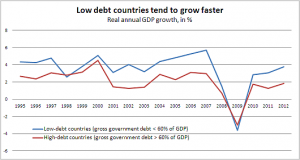
The global recovery is firmly under way,but is taking place at different speeds across countries and regions,according to the OECD’s latest Economic Outlook.
Historically high unemployment remains among the most pressing legacies of the crisis. It should prompt countries to improve labour market policies that boost job creation and prevent today’s high joblessness from becoming permanent,the report said.
World gross domestic product (GDP) is projected to increase by 4.2% this year and by 4.6% in 2012. Across OECD countries GDP is projected to rise by 2.3% this year and by 2.8% in 2012,in line with the previous forecasts of November 2010.
In the US,activity is projected to rise by 2.6% this year and by a further 3.1% in 2012. Euro area growth is forecast at 2% this year and next,while in Japan,GDP is expected to contract by 0.9% in 2011 and expand by 2.2% in 2012.
The recovery is becoming self-sustained,with trade and investment gradually replacing fiscal and monetary stimulus as the principal drivers of economic growth. Confidence is increasing,which could add further buoyancy to private sector activity,the OECD said.
But there are downside risks,including the possibility of further increases in oil and commodity prices,which could feed into core inflation;a stronger-than-projected slowdown in China;the unsettled fiscal situation in the United States and Japan;and renewed weakness in housing markets in many OECD countries. Financial vulnerabilities remain in the euro area,in spite of strong adjustment efforts underway in some countries.
“This is a delicate moment for the global economy,and the crisis is not over until our economies are creating enough jobs again,” said OECD Secretary-General Angel Gurría. “There is also some concern that if downside risks reinforce each other,their cumulative impact could weaken the recovery significantly,possibly triggering stagflation in some advanced economies.”
The top challenge facing countries continues to be dealing with widespread unemployment,which affects more than 50 million people in the OECD area. Governments must ensure that employment services and training programmes actually match the unemployed to jobs. They should also rebalance employment protection towards temporary workers;consider reducing taxes on labour via targeted subsidies for low paid jobs;and promote work-sharing arrangements that can minimise employment losses during downturns.
Stronger competition in retail trade and professional service sectors could also lead to greater job creation,and should be considered as part of wider structural reform programmes in advanced and emerging economies alike,the OECD says.
In advanced economies structural reforms can play a greater in role in boosting growth as governments are forced to withdraw fiscal and monetary stimulus launched in reaction to the crisis.
In emerging-market economies,structural reforms have the potential for making growth more sustainable and inclusive,while contributing to global rebalancing and enhancing long-term capital flows,the OECD said.
Emerging economies must also pay particular attention to the danger of overheating,which is increasing inflationary pressures,and in some cases,widening current account imbalances.
Countries must also make progress toward their fiscal consolidation goals,which are increasingly urgent. Government debt is set to rise to close to 96% of GDP average in the euro area this year and to just above 100% of GDP in the OECD as a whole. This is about 30 percentage points above the pre-crisis level. “High public debt levels,which have been shown to have a negative impact on growth,must be stabilised and then reduced as soon as possible,especially if one considers the likely impact of ageing in the next few decades,” Mr Gurría said.